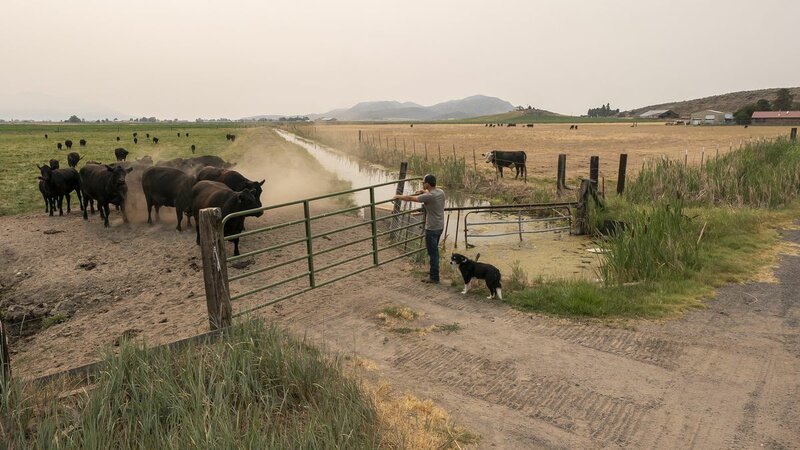Farms that rely on irrigation from a depleted, federally managed lake on the California-Oregon border, along with a Native American tribe fighting to protect fragile salmon, will both receive extremely limited amounts of water this summer as a historic drought and record-low reservoir levels drag on in the U.S. West.
More than 1,000 farmers and ranchers who draw water from the Klamath River that flows from the Upper Klamath Lake to the Pacific Ocean will have access to roughly one-seventh the amount they could get in a wetter year, a federal agency announced Monday. Downstream salmon will receive about half the water they’d get if the reservoir was full.
It’s the third year in a row that severe drought has impacted farmers, fish and tribes in a region where there’s not enough water to satisfy competing demands. Last year, no water at all flowed through the Klamath Reclamation Project’s main irrigation canal, and thousands of downstream juvenile salmon died without reservoir releases to support the Klamath River’s health.
The U.S. Bureau of Reclamation, which manages the irrigation project, announced $15 million in relief for affected farmers and $5 million for Native American tribes as a result of its decision and warned farmers not to take water beyond what was ordered or risk further irrigation reductions and legal action. The agency decides the allocations each year, taking into account court rulings that require certain lake levels to support two federally endangered fish species.



 Farming
Farming Agriculture
Agriculture Water
Water Native Americans
Native Americans Fishing
Fishing


